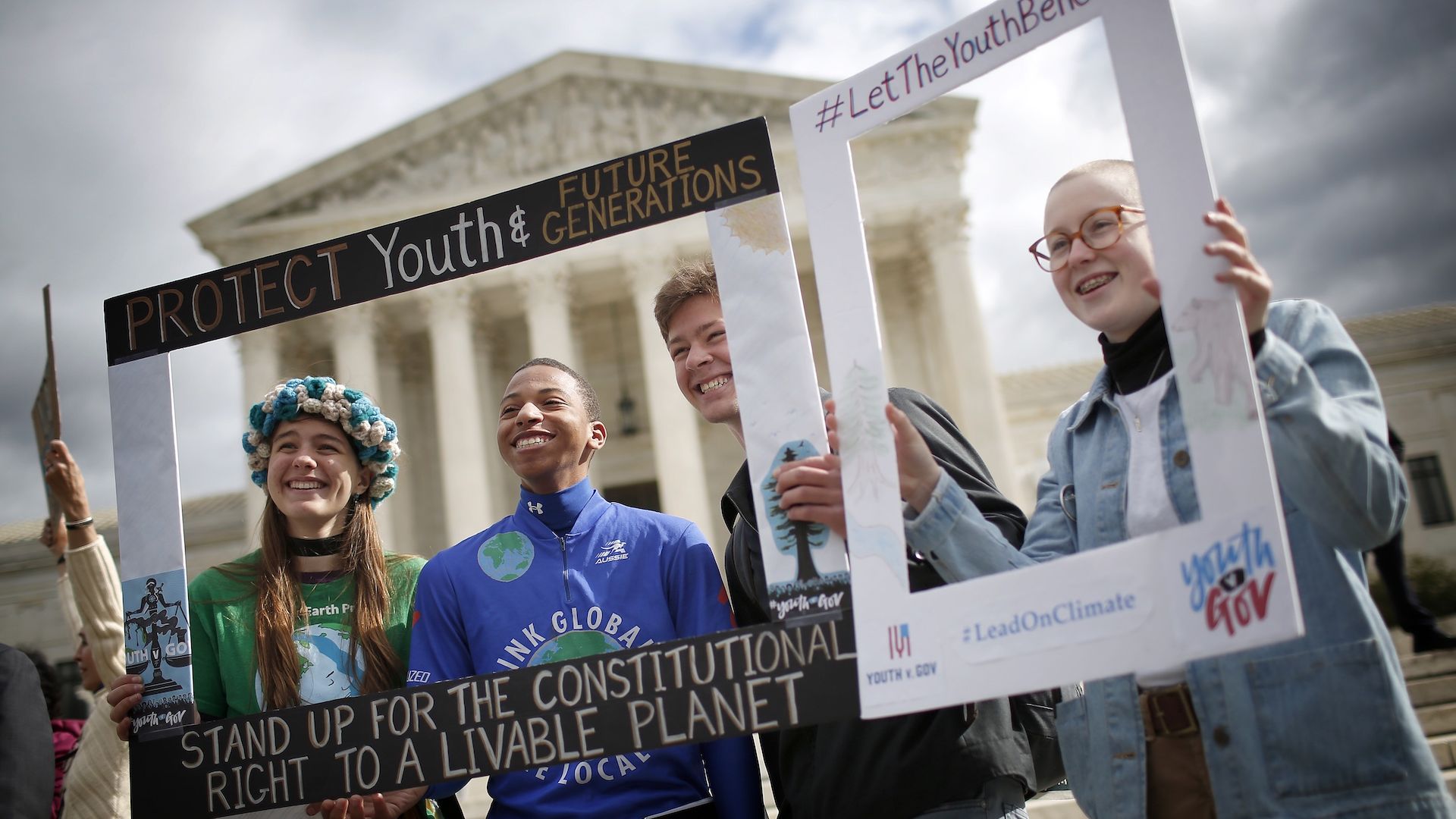Supreme Court refuses to block landmark youth climate lawsuit
Add Axios as your preferred source to
see more of our stories on Google.

Protesters attend a rally outside the U.S. Supreme Court held by the group Our Children’s Trust October 29, 2018 in Washington, DC. Photo: Win McNamee/Getty Images
The Supreme Court late Friday denied the Trump administration's attempt to halt a novel climate change lawsuit brought by 21 young Americans against the federal government. The suit alleges the government, through its longstanding energy policies, deprived the plaintiffs of the right to "a climate system capable of sustaining human life," among other harms.
Why it matters: The case, which has been winding its way through the federal court system for 3 years and has survived multiple attempts by the Justice Department to squash it, was due to go to trial on October 29 before the Supreme Court declared a temporary stay. The plaintiffs have filed a motion in U.S. District Court to call for an immediate start to the delayed trial.
The plaintiffs in the case are seeking for the courts to order the federal government to swiftly enact policies to cut human-caused greenhouse gas emissions, which are the main driver of global warming, and to take other actions to reduce climate change. The legal advocacy organization Our Children's Trust brought the case on behalf of the plaintiffs.
- The Trump administration has objected to the sweeping and "unprecedented legal theories" claimed in the case. The government contends that a court ruling in this case could usurp the role of Congress and federal agencies in setting national energy and environmental policies.
Between the lines: In deciding to let the case proceed, Chief Justice John Roberts wrote for the court that the government can seek to have the case halted through the U.S. Court of Appeals for the 9th Circuit. That court has denied previous attempts to stop the case before trial.
The details: The case, known as Juliana v United States, has galvanized the climate movement around the country, particularly given the underdog aspect of having 21 young people, who were all under the age of 19 when the case began, take on the government.
- If the case reaches trial, the plaintiffs plan to call multiple climate scientists to the stand to detail the causes and consequences of climate change, illustrating the effects of the government's energy policies on current and future generations.
The young plaintiffs assert the government's energy policies established and perpetuated a fossil fuel-centric energy system that has caused and worsened climate change, despite abundant scientific evidence showing the risks of such policies.
What they're saying:
Kelsey Juliana, a 22-year-old plaintiff from Eugene, Oregon said in a statement:
Today we move forward. I want to trust that we are truly on track for trial without having further delays, but these defendants are treating this case, our democracy, and the security of mine and future generations like it’s a game."— Kelsey Juliana, plaintiff in Juliana v United States
The stakes in this case are high, as the Columbia University Center for Climate Change Law makes clear in its summary of the case.
"The plaintiffs alleged that the “nation’s climate system” was critical to their rights to life, liberty, and property, and that the defendants had violated their substantive due process rights by allowing fossil fuel production, consumption, and combustion at 'dangerous levels.'"— Columbia University Center for Climate Change Law
